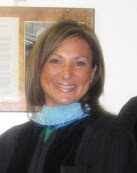Very interesting!
Feel free to make a comment. We are "famous"!
This is a educational blog for my courses at New Jersey University in Jersey City, NJ.

Stage 4: Techno-constructivists --These are the teachers who integrate technology into the curriculum so that it not only complements instruction but redefines it. The true techno-constructivists have come through the previous three stages and have realized the full potential of technology to help children build on their own experiences, construct their own meanings, create products, and solve problems successfully.

The term "computer virus" is sometimes used as a catch-all phrase to include all types of malware. Malware includes computer viruses, worms, trojan horses, most rootkits, spyware, dishonest adware, crimeware, and other malicious and unwanted software), including true viruses. Viruses are sometimes confused with computer worms and Trojan horses, which are technically different. A worm can exploit security vulnerabilities to spread itself to other computers without needing to be transferred as part of a host, and a Trojan horse is a program that appears harmless but has a hidden agenda. Worms and Trojans, like viruses, may cause harm to either a computer system's hosted data, functional performance, or networking throughput, when they are executed. Some viruses and other malware have symptoms noticeable to the computer user, but many are surreptitious.
Most personal computers are now connected to the Internet and to local area networks, facilitating the spread of malicious code. Today's viruses may also take advantage of network services such as the World Wide Web, e-mail, Instant Messaging, and file sharing systems to spread."
It got me thinking,I better update my own virus software. Maybe you should,too!![]()
Right now, as we try to set up the room, we are battling several issues:
Welcome to the world of integrating technology into the classroom.
Wish me luck. I will let you know how it goes. Please post any comments or suggestions as to how to make this an easy (or easier) transition.
 I found this quote today, and thought of this past semester:
I found this quote today, and thought of this past semester:
It must be remembered that the purpose of education is not to fill the minds of students with facts... it is to teach them to think, if that is possible, and always to think for themselves.
-- Robert Hutchins

 Here is a link to the new Saint Peter's College Center for Excellence in Teaching and Learning!
Here is a link to the new Saint Peter's College Center for Excellence in Teaching and Learning!I just received an email alert about this new website:
High School students looking to explore college options and school counselors in search of a resource for their students should examine CampusCompare, which is a new FREE online resource that merges current data on over 3,000 colleges, reviews, advice articles, financial aid calculators and more.
The website offers a variety of links to area maps, student reviews and "quick facts," and includes a tool that can predict a student’s odds of getting into any college in the U.S. Entire classes can be managed and communicated with via the website’s high school “networks.”
School counselors can use the site to monitor students from their own secure school network to schedule appointments, send individual or mass messages to students and manage key college application dates and suggest different schools that match a student’s academic and personal preferences.
Any thoughts?
In response to mmd's blog (GE555 class), I decided to post these articles regarding the debate between media, message, face-to-face (f2f) and online learning.
http://www.coe.tamu.edu/~mbastian/Clark-Kozma/CK-Debate.htm
Any thoughts?


 Here is a website from a terrific eduator named Vicki Blackwell.
Here is a website from a terrific eduator named Vicki Blackwell.

 According to Howard Gardner, musical intelligence involves skill in the performance, composition, and appreciation of musical patterns. It encompasses the capacity to recognize and compose musical pitches, tones, and rhythms.
According to Howard Gardner, musical intelligence involves skill in the performance, composition, and appreciation of musical patterns. It encompasses the capacity to recognize and compose musical pitches, tones, and rhythms.About the Guests:
This chat will be moderated by Education Week Associate Editor Scott J. Cech.

 Here is a poetry website that provides a poem a day:
Here is a poetry website that provides a poem a day:

http://www.education-world.com/a_lesson/lesson096.shtml
As educators, we need to provide motivational activities to keep our students interested.
See what you can use!


 Need resources for your classes or lessons?
Need resources for your classes or lessons? 
